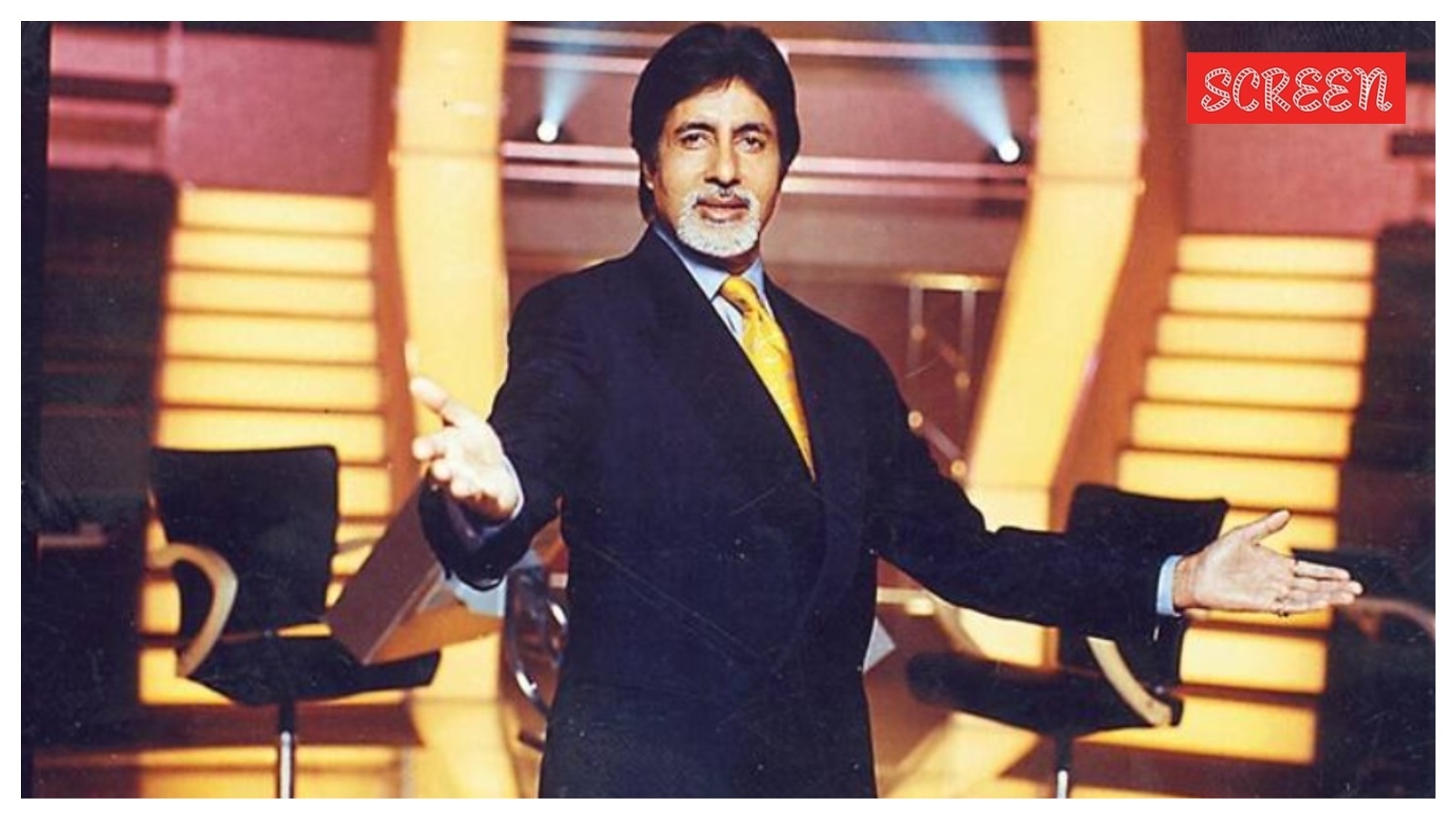The Mahabhrata Comes To Lincoln Center, NY: An Interview With Ellora Patnaik - NewsBreak
By Meera Kymal and Anuj Chakrapani,
5 hours ago

The Why Not Theatre company just concluded an acclaimed run of the classical Sanskrit epic, the Mahabharata, performed by an international South Asian cast, at Lincoln Center’s Rose Theater in New York.
The two-part adaptation, which ran from June 24 to 29, 2025, was created and directed byRavi Jain and Miriam Fernandes of Why Not Theatre.
Jain and Fernandes envisioned a modern take on a story that is over 4,000 years old and foundational to Indian culture, presenting a hybrid of cultures that balances East and West, traditional and contemporary.
Their refreshing retelling of a beloved mythological tale depicts the nature of human greed and need for power, which plays out in cyclical patterns of desire, jealousy, revenge, ego, violence, and ecocide, ultimately destroying families, friendships, and civilizations in its wake. The adaptation imparts life lessons that are even more relevant to the social and political winds buffeting our world today.
The play begins with the question, “When everyone believes they are right and their opponents wrong, how can one end a spiral of revenge?”

King Janamejaya wants to destroy every snake in the universe to avenge an attack that killed his father; that attack, in turn, was revenge extracted by a snake who survived the annihilation of his serpent kingdom by King Janamejaya’s ancestor centuries ago. A storyteller attempts to break the pattern of cyclical vengeance by narrating the Mahabharata, which represents the futile patterns of revenge that eventually play out in a family feud between the Pandava and Kaurava clans, ending in the savage battle of Kurukshetra. The play constantly seeks to interpret the meaning of Dharma in the complex actions of its protagonists as they navigate the life they inherit and the path they choose.
Against an immersive backdrop of sound, light, and live music, the adaptation explores profound philosophical and spiritual ideas through storytelling, classical dance, and song, weaving ancient wisdom with modern spectacle. One scene presents the Bhagavad Gita as Sanskrit verses sung in operatic style to create a moment that is particularly stunning and unexpectedly haunting. The large-scale narrative is told in two distinct parts—Part One: Karma: The Life We Inherit and Part Two: Dharma: The Life We Choose.

Premiering in 2023 at the Shaw Festival, Mahabharata toured the UK’s Barbican and recently appeared at Australia’s Perth Festival.
In an interview with Anuj Chakrapani for India Currents, Ellora Patnaik, who plays the warrior sage Drona as well as the Pandava matriarch Kunti, shares her perspective about the new version of the Mahabharata. This interview has been edited for clarity and brevity.

I first came to know of Why Not through my acquaintance with Ravi. My brother Devraj and I, having staged our own production of Mahabharata (Chitralekha Odissi Dance Creations Inc.), from 2003 through 2006, I was naturally very interested and intrigued when Ravi approached me with his vision for a modern retelling. And forgive me, I will use the word “share”, not retelling. It’s so much more than that. I believe the story found its way to Ravi and Miriam through their own life experiences. The deeper they explored, the need to share it increased and became more clear. Their individual essences, passion, and courage vibrate off the script onto the stage. Which, of course, would not be possible without the wonderful, dedicated, and talented team at Why Not.
As with many South Asians, this story is in our DNA. It’s a part of our ancestral roots. Especially now, how it relates to the world today in countless ways. I think, in the churn of the present chaos and uncertainty, the world needs this story now more than ever. Really, though, South Asian or not, you only have to be human to identify with the story. I believe that the medley of diverse forms of artistic expression—east meets west–and the inclusion of novel non-traditional theatrical elements make for a uniquely inclusive and immersive experience. The Mahabharata brought me to Why Not.

Karma: The Life We Inherit sets it up. It starts off with a very intimate circle seated around a fire in how ancient traditional storytelling used to take place. The story continues, including other types of collaborative and more modern storytelling through live music, song, dance, and Indian martial arts from diverse regions of India. We see relationships established, problems arise, and how it all snowballs into a dreadful family feud that carries us into Part 2. The dancer in me particularly loves that two of the ancient classical dance forms of India—Odissi and Kathakali—are prominently featured. As a life-long Odissi dance teacher, performer, and choreographer, I find it moving and fulfilling to bring Odissi to this show, on these stages, across the world.
Dharma: The Life We Choose. Time has passed, and the set has turned cold and grim (the set has now taken on artificial and superficial overtones, in a deliberate reflection of what the world has become). We are headed for war. Humans declare war is bad, anger clouds reason, and ego disintegrates the soul. Yet we continue on this path, and the Earth suffers on so many levels. The creators went with the interpretation of “dharma” being empathy. Empathy is something that we as humans cannot survive without. The story takes us to the battlefield just before the war launches, where we get a glimpse of the Bhagavad Gita (the Song of God) – I won’t go into detail, but it’s a feast for the senses that one cannot forget. We are left questioning ourselves as humans and what we can do to avoid the repetition of tragedies that the story relates.

Organically. Our team is not only a diverse medley of the global South Asian diaspora as reflected in our cast with members from Canada, UK, Australia, and Malaysia but also representative of the increasingly diverse artistic community, as reflected in our crew, which includes members from just about everywhere, and of all genders and cultures. Why Not is a small, humble company that has recently spread its wings on the global stage. Ravi has worked and trained all over the world. his sincerity, charm, and dedication have allowed him to form solid relationships everywhere he has gone, which have contributed to the present composition of our team.
Anyone who has inspired me is a Guru. My acting masters, Jackie Bartone and Thelma Louise Carter, guided me to find my platform here in New York. My dance Gurus, Kelucharan Mohapatra, Gangadhar Pradhan, and Pankaj Charan Das, and especially my mother, first guru and staunchest supporter, Chitralekha Patnaik, inspired my early love of dance and storytelling. It’s quite emotional for me as we end the tour in New York, where I first did my drama training. I have done so much here and met so many lifelong friends. Ending the tour here feels bittersweet, as if I have come full circle in my career and personal development. I think the biggest thing that I have learned from those who have inspired me is to be open, to have compassion, and to listen.

We have performed in six different cities on both sides of the world, filled with people of different backgrounds, ages, and cultures. The reaction has been overwhelmingly positive. To see the “WOW” in people’s eyes has been extremely satisfying.
I have a number of projects lined up and in the works. One thing I can mention is that I am eager for the release of the feature film “Calorie,” which was filmed in Montreal and Amritsar. In the meantime, I will continue to remain open to the good things in the world, to support young artists, to love animals, and to take inspiration as the world provides it.
The post The Mahabhrata Comes To Lincoln Center, NY: An Interview With Ellora Patnaik appeared first on India Currents.












